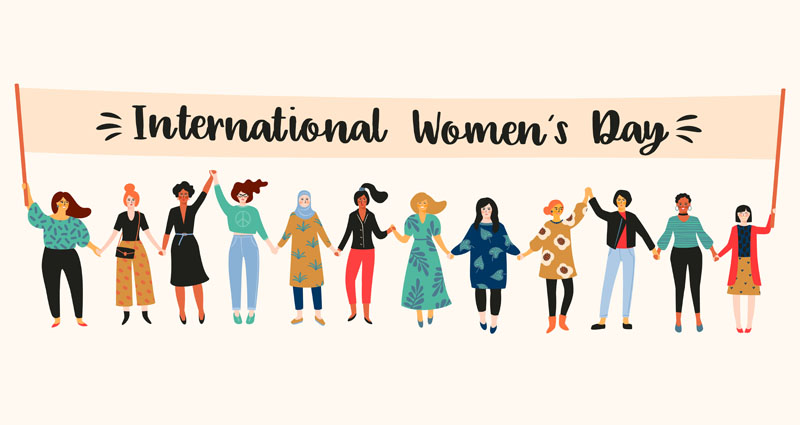
IWD 2022: What is needed to achieve gender equality?
While we celebrate the achievements to date, what actions can impact the existing gaps between genders?

Gender inequality is still rife throughout the European Union, and progress is not being made fast enough. In one example, the EU gender pay gap has been reduced by only 1% over the last eight years. At this rate, women in the EU will achieve equal pay in the next century, by the year 2104. The gender pay gap currently sits at 14.1% (women in the EU earn on average almost 15% less per hour than men), while the pension pay gap sits at 29%. All of this comes despite almost 60% of graduates in the EU being women.
-Solutions are available, but they take political will. Celebrating women one day a year is not enough, we can do so much more
Action can be taken to improve the situation, and a number of legislative proposals have been drafted to tackle gender inequality. Speaking on the options available at a European level, Eurocadres President Nayla Glaise outlined that "I support International Women's Day, but it cannot be purely symbolic. Solutions are available, but they take political will. Celebrating women one day a year is not enough, we can do so much more to tackle the root causes of gender inequality".
Happy #InternationalWomensDay?. A day for celebration, but also recognition of what we can do to #BreakTheBias, and achieve true #GenderEquity ???⚕️?♀️??. On #IWD2022 find out where we are, and what actions we can take, to promote #womeninleadership pic.twitter.com/7QEb7k705P— EUROCADRES (@EUROCADRES) March 8, 2022
Eurocadres on Twitter
Happy #InternationalWomensDay?. A day for celebration, but also recognition of what we can do to #BreakTheBias, and achieve true #GenderEquity ???⚕️?♀️??. On #IWD2022 find out where we are, and what actions we can take, to promote #womeninleadership pic.twitter.com/7QEb7k705P— EUROCADRES (@EUROCADRES) March 8, 2022
Eurocadres has long supported a number of proposals, such as the pay transparency directive, the Women on Boards proposal and improved access to re and up-skilling to improve the number of women in STEM throughout Europe. Political complacency cannot prevent progress.
Around two-thirds of the gender pay gap in the EU remains unexplained. It is especially female professionals and managers who face the unexplainable pay gap. As salaries are often individually negotiated, it can be nearly impossible to get the facts when suspecting pay discrimination. The European Commission's proposal for a directive on pay transparency is a good starting point, but reinforcement is still needed to close the gender pay gap, e.g., the obligation to make a salary report and assessment for an employer with a minimum of 250 employees should be lowered or alternatively the threshold be removed altogether.
A proposal for an EU Directive on improving the gender balance among non-executive directors of companies listed on stock exchanges and related measures was submitted in 2012 but has been stagnant in the EU Council already for ten years. The European Commission's president Ursula von der Leyen has made a clear statement, that the proposal for a directive should be unlocked and pushed forward within the year 2022. The outcomes of several studies clearly show that gender quotas are an effective policy for increasing the share of women on corporate boards, with this underrepresentation of women on boards being one of the key gender gaps in the European Union.
In pushing for concrete action, women may begin to feel valued not just one day a year in the workplace.
